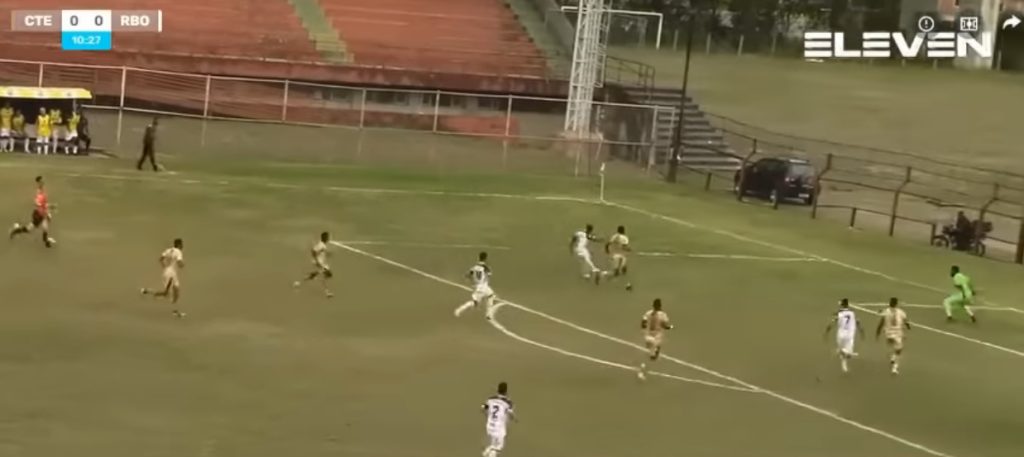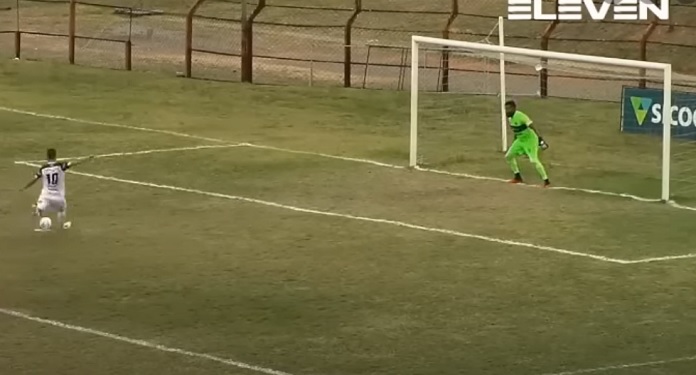Nine former CTE/Colatina players were judged this Tuesday, the 4th, by the Second Disciplinary Commission of the Sports Court of Espírito Santo (TJD-ES), for alleged involvement in sports betting.
In the understanding of the TJD-ES, unanimously, the goalkeeper Aranha, the laterals Rodrigo Andrade, Kemerson and Matheus Gama, the defenders John Kanu and José Daniel, the midfielders Macaíba and Pantico, and the striker Rogger were cleared.
However, the Court understood that the performance of the players, in a match valid for the sixth round of the Copa Espírito Santo 2022, in June of last year, was intended to harm the team.
At the time, the team was behind on salaries and the players were authors of bizarre moves, which resulted in the 4-0 defeat by Rio Branco-ES, at the Engenheiro Araripe stadium.

In its judgment, the Second Disciplinary Commission of the Court of Sports Justice of Espírito Santo understood that the athletes, dissatisfied with salary issues, were not properly competitive in the game. As a result, based on Article 243 of the Brazilian Code of Sports Justice (CBJD), the nine players were fined R$5,000 and suspended for 180 days.
“Article 243: Deliberately act in a way that is harmful to the team that it defends. PENALTY: fine, from R$ 100.00 (one hundred reais) to R$ 100,000.00 (one hundred thousand reais), and suspension of one hundred and eighty to three hundred and sixty days”.
In addition to the nine players, former directors and former members of the CTE/Colatina technical commission were judged this Tuesday. Vice-president José Tamy, former technical assistant Jasson Silva and former directors Rafael de Araújo and Jonas Kluves were fined R$500 by the TJD-ES for failing to appear at a hearing to provide clarification on the situation involving the team players.
Football players and sports betting
FIFA and the Brazilian Football Confederation (CBF) have regulations that prohibit the involvement of players with sports betting. FIFA’s code of ethics has the following restrictions:
A third party places a bet on your behalf on a football match with the money of someone involved in football, and the person involved in football takes the profit;
A third party places a bet on your behalf with your own money on a football match with someone involved in football, and they share the profits;
Someone involved in football passes on privileged information to third parties, which is information that that person can only have due to their position in the game and that is not available to the public. The third party places a bet on this game based on the information received.

In its Code of Ethics, FIFA makes no specific mention of acting in partnership between bookmakers and players. The Ministry of Finance, which is preparing a provisional measure to regulate the sector in the country, intends to add a ban on sportsmen betting, as well as forcing entities to provide for such situations in their regulations.
The General Competition Regulations of the CBF have an item in article 65 that prohibits the player from placing sports bets. Another item says that it will be considered “illicit conduct” the fact of: “instructing, encouraging or facilitating any other person to bet on a football match in which he is participating or can exert influence”.




















































